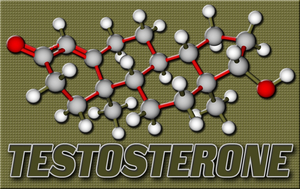Introduction
Hypopituitarism, a condition characterized by the reduced production of one or more of the hormones produced by the pituitary gland, has significant implications on various bodily functions, including reproductive health. In American males, this condition can lead to a cascade of hormonal imbalances that directly affect gonadal function, notably influencing testosterone levels and sperm production. This article delves into the effects of hypopituitarism on male reproductive health, emphasizing the importance of early diagnosis and management to mitigate its impact on fertility and overall well-being.
Understanding Hypopituitarism and Its Hormonal Cascade
Hypopituitarism disrupts the delicate balance of hormones that regulate bodily functions, including the reproductive system. The pituitary gland, often referred to as the "master gland," secretes hormones that stimulate other endocrine glands, such as the gonads. In males, the gonadotropins—follicle-stimulating hormone (FSH) and luteinizing hormone (LH)—are crucial for the regulation of testosterone production and spermatogenesis. When hypopituitarism leads to decreased secretion of these hormones, it can result in hypogonadism, characterized by low testosterone levels and impaired sperm production.
The Role of Testosterone in Male Health
Testosterone, the primary male sex hormone, plays a pivotal role in the development and maintenance of male reproductive tissues, as well as secondary sexual characteristics such as muscle mass and bone density. In American males, hypopituitarism-induced hypogonadism can lead to a myriad of symptoms, including decreased libido, erectile dysfunction, fatigue, and mood disturbances. Moreover, the long-term effects of low testosterone levels can increase the risk of osteoporosis and cardiovascular diseases, underscoring the importance of addressing hypopituitarism promptly.
Impact on Sperm Production and Fertility
The influence of hypopituitarism extends beyond testosterone levels to affect spermatogenesis directly. FSH is essential for the maturation of sperm cells, while LH stimulates the production of testosterone, which is necessary for the initiation of spermatogenesis. In the absence of adequate levels of these hormones, sperm production can be significantly compromised, leading to reduced fertility. For American males planning to start a family, understanding the impact of hypopituitarism on sperm production is crucial for making informed reproductive health decisions.
Diagnosis and Management Strategies
Early diagnosis of hypopituitarism is vital for preventing the progression of its effects on gonadal function. Diagnostic tests may include hormone level assessments, pituitary imaging, and semen analysis to evaluate the extent of hypogonadism and its impact on fertility. Treatment strategies often involve hormone replacement therapy to restore normal levels of gonadotropins and testosterone. For males with fertility concerns, additional interventions such as gonadotropin therapy may be considered to enhance sperm production.
Conclusion
Hypopituitarism poses a significant challenge to the reproductive health of American males, affecting both testosterone levels and sperm production. By understanding the hormonal mechanisms underlying this condition and its impact on fertility, healthcare providers can offer targeted interventions to mitigate its effects. As research continues to unravel the complexities of hypopituitarism, the focus remains on improving diagnostic and treatment modalities to support the reproductive health and overall well-being of affected individuals.
Contact Us Today For A Free Consultation

- What is Hypopituitarism [Last Updated On: March 16th, 2025] [Originally Added On: February 18th, 2021]
- Is There Such a Thing as Too Much HGH? [Last Updated On: March 16th, 2025] [Originally Added On: August 22nd, 2023]
- Unveiling the Cardiovascular Implications of Hypopituitarism in American Males [Last Updated On: March 1st, 2025] [Originally Added On: March 1st, 2025]
- Hypopituitarism in American Men: Impacts and Management Strategies [Last Updated On: March 10th, 2025] [Originally Added On: March 10th, 2025]
- Hypopituitarism and Metabolic Syndrome: Unraveling the Connection in American Males [Last Updated On: March 16th, 2025] [Originally Added On: March 16th, 2025]
- Unveiling the Cardiovascular Risks: The Link Between Hypopituitarism and Heart Disease in American Males [Last Updated On: March 16th, 2025] [Originally Added On: March 16th, 2025]
- Unraveling the Connection: Hypopituitarism and Uterine Fibroids in American Males [Last Updated On: March 16th, 2025] [Originally Added On: March 16th, 2025]
- Exploring Hypopituitarism's Impact on Vaginal Health and the Female Reproductive System [Last Updated On: March 16th, 2025] [Originally Added On: March 16th, 2025]
- Unraveling the Hormonal Link: Hypopituitarism and Breast Cancer in American Males [Last Updated On: March 16th, 2025] [Originally Added On: March 16th, 2025]
- Hypopituitarism and Autoimmune Disorders: Critical Insights for American Males [Last Updated On: March 16th, 2025] [Originally Added On: March 16th, 2025]
- Hypopituitarism and Obesity in American Males: Hormonal Impacts and Management Strategies [Last Updated On: March 17th, 2025] [Originally Added On: March 17th, 2025]
- Hypopituitarism in American Males: Hormonal Imbalances and Sleep Disorder Connections [Last Updated On: March 18th, 2025] [Originally Added On: March 18th, 2025]
- Surgical Interventions for Hypopituitarism and Pituitary Tumors in American Males [Last Updated On: March 19th, 2025] [Originally Added On: March 19th, 2025]
- Hypopituitarism's Impact on Mental Health in American Males: Depression, Anxiety, and Treatment [Last Updated On: March 19th, 2025] [Originally Added On: March 19th, 2025]
- Multidisciplinary Care Essential for Managing Hypopituitarism in American Males [Last Updated On: March 20th, 2025] [Originally Added On: March 20th, 2025]
- Hypopituitarism in American Males: Cancer Risks and Monitoring Strategies [Last Updated On: March 21st, 2025] [Originally Added On: March 21st, 2025]
- Hypopituitarism and Anemia in American Males: The Critical Role of EPO Deficiency [Last Updated On: March 21st, 2025] [Originally Added On: March 21st, 2025]
- Hypopituitarism and Male Hair Loss: Hormonal Mechanisms and Treatment Strategies [Last Updated On: March 21st, 2025] [Originally Added On: March 21st, 2025]
- Hypopituitarism's Impact on Kidney Function in American Males: Monitoring and Management [Last Updated On: March 21st, 2025] [Originally Added On: March 21st, 2025]
- Hypopituitarism's Impact on Immune Function in American Men: Diagnosis, Treatment, and Management [Last Updated On: March 21st, 2025] [Originally Added On: March 21st, 2025]
- Hypopituitarism in American Males: Cognitive Impacts and Management Strategies [Last Updated On: March 22nd, 2025] [Originally Added On: March 22nd, 2025]
- Hypopituitarism in American Males: Impact on Eye Health and Visual Impairments [Last Updated On: March 22nd, 2025] [Originally Added On: March 22nd, 2025]
- Hypopituitarism in Aging American Males: Impact, Diagnosis, and Management Strategies [Last Updated On: March 22nd, 2025] [Originally Added On: March 22nd, 2025]
- Hypopituitarism's Impact on Liver Health in American Males: Hormonal Deficiencies and Management [Last Updated On: March 22nd, 2025] [Originally Added On: March 22nd, 2025]
- Hypopituitarism's Impact on Joint Health in American Males: Diagnosis and Management [Last Updated On: March 22nd, 2025] [Originally Added On: March 22nd, 2025]
- Hypopituitarism's Impact on GI Health in American Males: Digestion and Nutrient Absorption [Last Updated On: March 23rd, 2025] [Originally Added On: March 23rd, 2025]
- Hypopituitarism's Impact on Skin Health in American Males: Symptoms and Management [Last Updated On: March 23rd, 2025] [Originally Added On: March 23rd, 2025]
- Hypopituitarism and Seizure Disorders in American Males: Clinical Insights and Management [Last Updated On: March 23rd, 2025] [Originally Added On: March 23rd, 2025]
- Hypopituitarism and Migraines: Hormonal Links and Management Strategies for American Men [Last Updated On: March 23rd, 2025] [Originally Added On: March 23rd, 2025]
- Hypopituitarism and Hypertension: Impact on Blood Pressure in American Males [Last Updated On: March 23rd, 2025] [Originally Added On: March 23rd, 2025]
- Hypopituitarism's Link to Gout and Uric Acid in American Males: A Comprehensive Analysis [Last Updated On: March 23rd, 2025] [Originally Added On: March 23rd, 2025]
- Hypopituitarism's Impact on Muscle Strength in American Males: Management and Insights [Last Updated On: March 24th, 2025] [Originally Added On: March 24th, 2025]
- Autoimmune Link: Hypopituitarism and Rheumatoid Arthritis in American Males [Last Updated On: March 24th, 2025] [Originally Added On: March 24th, 2025]
- Exploring the Link Between Hypopituitarism and MS in American Males [Last Updated On: March 24th, 2025] [Originally Added On: March 24th, 2025]
- Autoimmune Link Between Hypopituitarism and Celiac Disease in American Males [Last Updated On: March 24th, 2025] [Originally Added On: March 24th, 2025]
- Hypopituitarism and Diabetes: Impact on Glucose Metabolism in American Males [Last Updated On: March 25th, 2025] [Originally Added On: March 25th, 2025]
- Hypopituitarism's Impact on Kidney Health in American Males: Monitoring and Management [Last Updated On: March 25th, 2025] [Originally Added On: March 25th, 2025]
- Hypopituitarism and Hearing Loss: Exploring Links and Implications for American Males [Last Updated On: March 25th, 2025] [Originally Added On: March 25th, 2025]
- Hypopituitarism in American Males: Cardiovascular Risks and Management Strategies [Last Updated On: March 25th, 2025] [Originally Added On: March 25th, 2025]
- Hypopituitarism's Impact on Asthma in American Males: Hormonal Insights and Management [Last Updated On: March 25th, 2025] [Originally Added On: March 25th, 2025]
- Hypopituitarism and Allergies: Hormonal Impacts on Immune Response in American Men [Last Updated On: March 26th, 2025] [Originally Added On: March 26th, 2025]
- Hypopituitarism's Role in Accelerating Parkinson's Disease in American Males [Last Updated On: March 26th, 2025] [Originally Added On: March 26th, 2025]
- Hypopituitarism and Liver Cirrhosis: Impacts and Management in American Males [Last Updated On: March 26th, 2025] [Originally Added On: March 26th, 2025]
- Hypopituitarism and CFS Overlap in American Males: Symptoms, Mechanisms, and Clinical Insights [Last Updated On: March 26th, 2025] [Originally Added On: March 26th, 2025]
- Hypopituitarism and Fibromyalgia: Overlapping Symptoms and Impact on American Males [Last Updated On: March 26th, 2025] [Originally Added On: March 26th, 2025]
- Hypopituitarism, Hormonal Imbalances, and Alzheimer's Risk in American Males [Last Updated On: March 26th, 2025] [Originally Added On: March 26th, 2025]
- Hypopituitarism and Sjögren's Syndrome: Effects on Exocrine Glands in American Males [Last Updated On: March 26th, 2025] [Originally Added On: March 26th, 2025]
- Hypopituitarism and Dyslipidemia: Impacts on American Males' Health and Management Strategies [Last Updated On: March 26th, 2025] [Originally Added On: March 26th, 2025]
- Hypopituitarism's Impact on Prostate Cancer in American Males: Diagnosis and Management [Last Updated On: March 26th, 2025] [Originally Added On: March 26th, 2025]
- Exploring the Link Between Hypopituitarism and Lupus in American Males [Last Updated On: March 27th, 2025] [Originally Added On: March 27th, 2025]
- Hypopituitarism and Pituitary Cancer: Early Detection and Management for American Males [Last Updated On: March 27th, 2025] [Originally Added On: March 27th, 2025]
- Hypopituitarism in American Males: Monitoring Hormones to Reduce Stroke Risk [Last Updated On: March 27th, 2025] [Originally Added On: March 27th, 2025]
- Hypopituitarism and IBD: Gastrointestinal Links and Impacts on American Males [Last Updated On: March 27th, 2025] [Originally Added On: March 27th, 2025]
- Hypopituitarism and Adrenal Cancer: Endocrine Links in American Males [Last Updated On: March 27th, 2025] [Originally Added On: March 27th, 2025]
- Hypopituitarism and Osteoarthritis: Impact on Joint Health in American Males [Last Updated On: March 28th, 2025] [Originally Added On: March 28th, 2025]
- Hypopituitarism and Gallbladder Disease: Exploring Links in American Males [Last Updated On: March 29th, 2025] [Originally Added On: March 29th, 2025]
- Hypopituitarism's Impact on Pancreatitis: Risks and Management for American Males [Last Updated On: March 29th, 2025] [Originally Added On: March 29th, 2025]
- Hypopituitarism and Breast Cancer Link in American Males: Hormonal Insights and Clinical Implications [Last Updated On: March 30th, 2025] [Originally Added On: March 30th, 2025]
- Hormonal Imbalances in Hypopituitarism and Thyroid Cancer: Impacts on American Males [Last Updated On: March 30th, 2025] [Originally Added On: March 30th, 2025]
- Hypopituitarism and Testicular Cancer: Impacts and Fertility Preservation Strategies [Last Updated On: March 31st, 2025] [Originally Added On: March 31st, 2025]
- Hypopituitarism and Ovarian Cancer: Exploring Hormonal Links in American Males [Last Updated On: March 31st, 2025] [Originally Added On: March 31st, 2025]
- Hypopituitarism in American Males: Hormonal Imbalances and Benign Tumor Risks [Last Updated On: April 4th, 2025] [Originally Added On: April 4th, 2025]
- Hypopituitarism and PCOS: Symptoms, Diagnosis, and Management Strategies [Last Updated On: April 4th, 2025] [Originally Added On: April 4th, 2025]
- Hormonal Links Between Hypopituitarism and Endometriosis in American Males Explored [Last Updated On: April 5th, 2025] [Originally Added On: April 5th, 2025]
- Hypopituitarism and Erectile Dysfunction: Hormonal Links and Holistic Management in American Males [Last Updated On: April 6th, 2025] [Originally Added On: April 6th, 2025]
- Hypopituitarism: Effects on Male Reproductive and Penile Health [Last Updated On: April 8th, 2025] [Originally Added On: April 8th, 2025]
- Hypopituitarism, Hormonal Imbalance, and Cervical Cancer Risk in Men [Last Updated On: April 8th, 2025] [Originally Added On: April 8th, 2025]
- Hypopituitarism's Impact on Female Reproductive and Vaginal Health: Diagnosis and Management [Last Updated On: April 9th, 2025] [Originally Added On: April 9th, 2025]
- Hypopituitarism and Premature Ejaculation: Exploring Hormonal Links in American Males [Last Updated On: April 10th, 2025] [Originally Added On: April 10th, 2025]
- Hypopituitarism's Impact on Miscarriage Risk and Male Fertility in America [Last Updated On: April 10th, 2025] [Originally Added On: April 10th, 2025]
- Hypopituitarism and Preeclampsia in Pregnancy: Monitoring and Management Strategies [Last Updated On: April 10th, 2025] [Originally Added On: April 10th, 2025]
- Hypopituitarism and Ectopic Pregnancy: Impacts and Management in Women's Health [Last Updated On: April 11th, 2025] [Originally Added On: April 11th, 2025]
- Hypopituitarism and Male Infertility: Causes, Diagnosis, and Treatment Options [Last Updated On: April 11th, 2025] [Originally Added On: April 11th, 2025]
- Hypopituitarism and Gestational Diabetes: Metabolic Links in American Males [Last Updated On: April 11th, 2025] [Originally Added On: April 11th, 2025]
- Hypopituitarism's Impact on Lactation: Support Strategies for American Males [Last Updated On: April 12th, 2025] [Originally Added On: April 12th, 2025]
- Hypopituitarism's Impact on Mental Health and Postpartum Depression in American Males [Last Updated On: April 15th, 2025] [Originally Added On: April 15th, 2025]
- Hormonal Imbalances in Women: Hypopituitarism, Menopause, and Supportive Roles for American Males [Last Updated On: April 15th, 2025] [Originally Added On: April 15th, 2025]
- Hypopituitarism's Impact on Dental Health in American Males: Monitoring and Care Strategies [Last Updated On: April 16th, 2025] [Originally Added On: April 16th, 2025]
- Hypopituitarism and Andropause: Impacts and Management in Aging American Males [Last Updated On: April 16th, 2025] [Originally Added On: April 16th, 2025]
- Hypopituitarism and Alopecia: Impact on Male Hair Health and Treatment Strategies [Last Updated On: April 16th, 2025] [Originally Added On: April 16th, 2025]
Word Count: 488




















